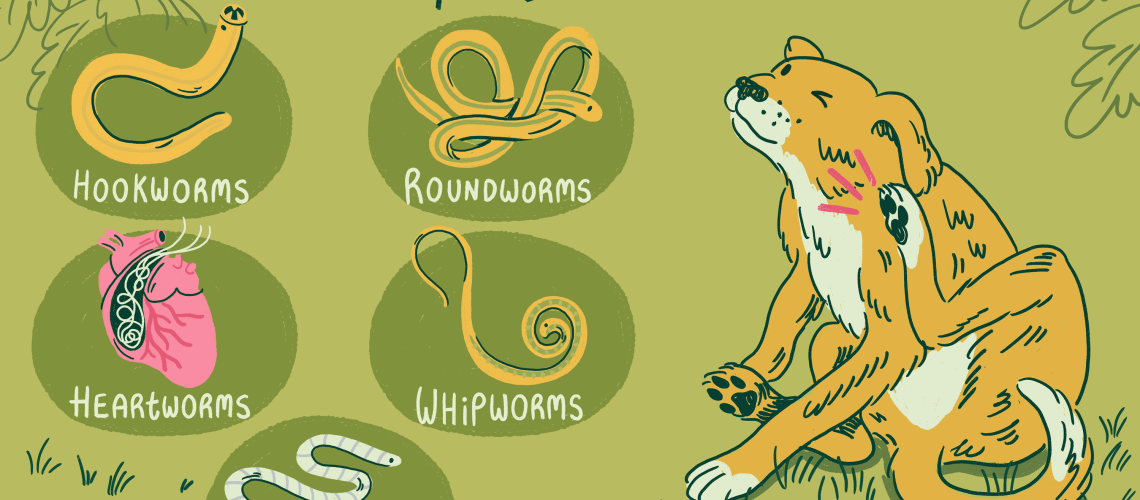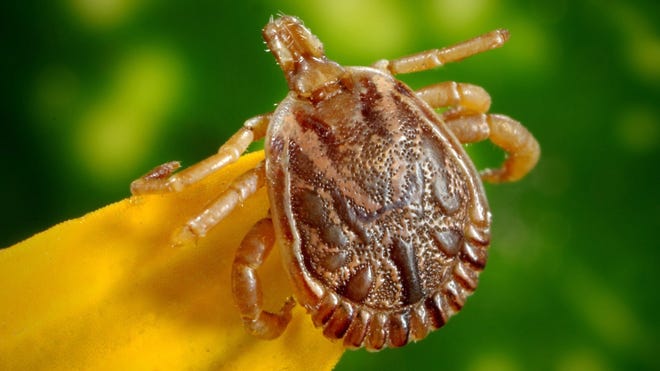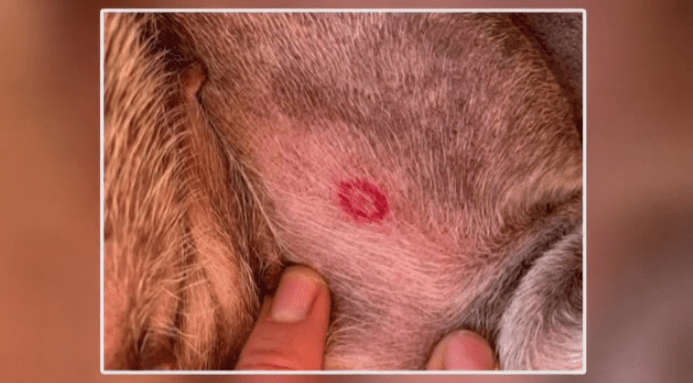Key Takeaways:
- Fleas are one of the most common external parasites found on dogs, causing itching and discomfort.
- Ticks can transmit dangerous diseases to dogs, such as Lyme disease and Rocky Mountain spotted fever.
- Intestinal worms, like roundworms and hookworms, can cause digestive issues and may be transmitted to humans.
- Heartworms are a serious threat to dogs' heart and lungs, transmitted through mosquito bites.
- Regular preventative measures, such as flea and tick control products and deworming medications, are crucial for keeping dogs parasite-free.
Are you a dog lover? Do you want to ensure the health and well-being of your furry friend? Then, understanding the common parasites found on and inside dogs is essential for you! These tiny creatures may seem harmless, but they can wreak havoc on your dog's health if left untreated. By delving into this subject, you will gain valuable knowledge that can help protect your beloved pet from these pesky intruders. Did you know that approximately 34% of dogs in the United States are affected by intestinal parasites? Imagine the impact that understanding this topic could have on your dog's overall health! So, let's embark on this journey together, as we explore the world of common parasites found on and inside dogs. Get ready to become an expert in keeping your four-legged friend safe and healthy!
What Are Parasites and Why Are They Harmful to Dogs?
Understanding Parasites
Parasites are tiny organisms that live on or inside another organism, known as the host. In the case of dogs, parasites can include fleas, ticks, worms, and mites. These parasites rely on the dog's body for their survival and reproduction. They feed off the dog's blood or nutrients, causing harm in the process.
The Harmful Effects of Parasites
Parasites can have a detrimental impact on a dog's health. For example, fleas and ticks can cause itching, skin irritation, and even transmit diseases. Worms such as roundworms and hookworms can lead to weight loss, diarrhea, and anemia in dogs. Mites can cause severe itching and skin infections.
It is important to prevent and treat parasite infestations in dogs to ensure their well-being and prevent any potential complications. Regular check-ups with a veterinarian are essential for early detection and effective treatment.
The Effects of Fleas and Ticks on Dogs: Signs of Infestation
Signs of Flea Infestation
Fleas are small insects that live on the skin of dogs. If your dog has fleas, you may notice them scratching excessively or chewing at their fur. Flea bites can cause redness, inflammation, and small bumps on the skin. You might also see tiny black specks (flea dirt) on your dog's fur or bedding.
Signs of Tick Infestation
Ticks are arachnids that attach themselves to a dog's skin to feed on their blood. If your dog has ticks, you may find them attached to their body, especially in areas like the ears or between the toes. Ticks can cause skin irritation and transmit diseases such as Lyme disease. Check your dog regularly for ticks, especially after walks in wooded areas or tall grass.
If you notice any signs of flea or tick infestation, it is important to take immediate action to eliminate the parasites and prevent further harm to your dog's health. Your veterinarian can recommend appropriate treatments and preventive measures.
Do Dogs Get Worms? Types of Worms That Can Affect Them
Common Types of Worms in Dogs
Dogs can get different types of worms, including roundworms, hookworms, whipworms, and tapeworms. These worms can enter a dog's body through various sources such as contaminated soil, infected fleas or ticks, or by ingesting infected animals.
- Roundworms: These are long, spaghetti-like worms that can be found in a dog's intestines. They can cause diarrhea, vomiting, and a pot-bellied appearance in puppies.
- Hookworms: These worms attach themselves to the intestinal wall and feed on blood. They can cause anemia and bloody stools in dogs.
- Whipworms: Whipworms reside in the large intestine and can cause weight loss, diarrhea with mucus or blood, and overall weakness.
- Tapeworms: Tapeworm segments resemble small grains of rice and are often seen around a dog's anus or in their feces. They may cause itching around the anal area.
The Importance of Deworming
Regular deworming is crucial for dogs to prevent worm infestations and maintain good health. Your veterinarian will recommend an appropriate deworming schedule based on your dog's age, lifestyle, and risk factors. It is important to follow this schedule to protect your furry friend from the harmful effects of worms.
Symptoms of Worms in Dogs and How to Treat Them
Signs of Worm Infestation
If your dog has worms, you may notice the following symptoms:
- Diarrhea or bloody stools
- Vomiting
- Weight loss or poor appetite
- Pot-bellied appearance
- Lethargy or weakness
It is important to consult a veterinarian if you suspect your dog has worms. The veterinarian will perform diagnostic tests such as fecal examinations to confirm the presence of worms and identify the specific type. Based on the diagnosis, they will recommend an appropriate treatment plan.
Treating Worm Infestations
The treatment for worms in dogs typically involves administering deworming medications prescribed by a veterinarian. These medications are designed to kill the worms and eliminate them from the dog's body. In some cases, multiple treatments may be necessary to fully eradicate the infestation.
Preventive measures such as regular deworming, proper hygiene, and controlling exposure to potential sources of infection are essential in preventing future worm infestations. Your veterinarian can provide guidance on effective preventive strategies tailored to your dog's needs.
Preventive Measures to Keep Dogs Safe from Parasites
Maintaining Good Hygiene
One of the most important preventive measures against parasites is maintaining good hygiene for your dog. This includes regular bathing with a mild dog shampoo and keeping their living area clean. Regularly washing their bedding and vacuuming areas where they spend time can help remove any flea eggs or larvae.
Using Preventive Products
There are various preventive products available that can help protect your dog from parasites. These include spot-on treatments, oral medications, collars, and sprays. These products contain active ingredients that repel or kill fleas, ticks, and other parasites. Consult with your veterinarian to determine the most suitable preventive product for your dog.
Keeping the Environment Clean
To reduce the risk of parasites, it is important to keep your dog's environment clean. Regularly remove feces from your yard and dispose of them properly. Avoid areas with high parasite populations, such as heavily wooded or grassy areas where ticks may be prevalent.
By implementing these preventive measures, you can significantly reduce the chances of your dog encountering parasites and experiencing associated health issues.
How to Check Your Dog for Parasites at Home
Inspecting for Fleas
To check your dog for fleas, part their fur and look closely at their skin. Look for any signs of tiny black specks (flea dirt) or actual fleas moving around. You can also use a fine-toothed comb to comb through their fur, especially in areas like the neck and tail base, where fleas tend to hide.
Searching for Ticks
Ticks are often visible to the naked eye when they attach themselves to a dog's skin. Carefully examine your dog's body, paying close attention to areas like the ears, armpits, groin area, and between the toes. If you find a tick attached to your dog, use tweezers or a tick removal tool to grasp it as close to the skin as possible and gently pull it straight out.
Checking for Worms
While it may not be possible to visually identify internal worms in dogs without professional assistance, you can look out for symptoms such as diarrhea, vomiting, or segments of tapeworms around the anus. If you notice any unusual signs or suspect your dog may have worms, consult with a veterinarian for proper diagnosis and treatment.
Regularly checking your dog for parasites at home allows you to detect infestations early and seek appropriate veterinary care if needed.
The Importance of Regular Veterinary Check-ups for Parasite Screenings and Treatments in Dogs
Parasite Screenings
Regular veterinary check-ups are crucial for parasite screenings in dogs. During these visits, the veterinarian will examine your dog and conduct tests such as fecal examinations to detect the presence of parasites. Early detection allows for prompt treatment, preventing further harm to your dog's health.
Treatment Plans
Veterinary check-ups also provide an opportunity to discuss preventive measures and develop a tailored treatment plan based on your dog's specific needs. The veterinarian will recommend appropriate medications, vaccinations, and preventive products to protect your dog from parasites.
Overall Health Assessment
In addition to parasite screenings, regular veterinary check-ups allow for a comprehensive assessment of your dog's overall health. The veterinarian will examine their weight, coat condition, teeth, and other vital signs. This helps identify any underlying health issues that may contribute to their susceptibility to parasites or affect their well-being.
By scheduling regular veterinary check-ups, you ensure that your dog receives the necessary care and attention to keep them healthy and protected from parasites. Your veterinarian is the best resource for guidance on parasite prevention and treatment options specific to your furry friend.
In conclusion, dogs can be affected by various parasites both on and inside their bodies. It is important for dog owners to be aware of these parasites and take preventive measures to keep their furry friends healthy and happy.
What is the most common internal parasite in dogs?
Roundworms are the prevailing intestinal parasites found in dogs and cats globally. When the eggs of these worms become larvae and are found in the feces of an infected animal, they can transmit the infection to other animals.
What are the common parasites in dogs?
Dogs can be affected by various types of internal parasites that can cause health issues. These parasites include roundworms (Toxocara cati, Toxascaris leonina), heartworms (Dirofilaria immitis), tapeworms (Dipylidium caninum, Taenia species, and Echinococcus species), hookworms (Ancylostoma), and whipworms (Trichuris vulpis).
How common are internal parasites in dogs?
Dogs often experience issues with internal parasites. These parasites can be spread through contact with contaminated feces or by consuming insects, soil, or food that is infected. Feeding dogs raw diets can also lead to concerns about parasitic infection in meat. Roundworms are a frequent problem in dogs.
What kills internal parasites in dogs?
Products that contain pyrantel pamoate can be used to treat roundworms and hookworms. Dogs with tapeworms should be treated with praziquantel, which can be obtained over the counter or from a veterinarian. Whipworm infestations can be treated with fenbendazole, which is available from a veterinarian.
What are the parasites in dogs that aren't worms?
There are various types of parasites that can infect dogs, such as Coccidia, Giardia, and Spirochetes. Your veterinarian can effectively diagnose, treat, and prevent these intestinal parasites.
What causes internal parasites in dogs?
Dogs can become infected with intestinal parasites through various means. Typically, parasites are transmitted when an animal accidentally consumes eggs or spores in contaminated soil, water, feces, or food. In the case of tapeworms, dogs can also become infected if they ingest a flea that is carrying the parasite.

















